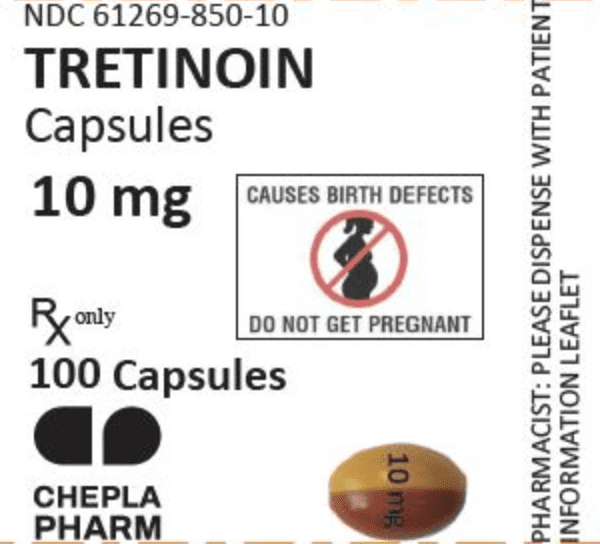Tretinoin Disease Interactions
There are 2 disease interactions with tretinoin.
Tretinoin (applies to tretinoin) hepatic dysfunction
Major Potential Hazard, High plausibility. Applicable conditions: Liver Disease
Elevated liver enzymes have been reported in 50% to 60% of patients administered tretinoin. These abnormalities are usually reversible, however, patients with hepatic impairment may be at increased risk of hepatotoxicity associated with tretinoin. Clinical monitoring of hepatic function is necessary and consideration should be given to withholding tretinoin therapy if enzyme levels reach 5 times the upper limit of normal values.
Tretinoin (applies to tretinoin) hyperlipidemia
Moderate Potential Hazard, High plausibility.
A reversible elevation of cholesterol and/or triglycerides has been reported in up to 60% of patients administered tretinoin. Venous thrombosis and myocardial infarction have occurred in patients at low risk for such complications. Therapy with tretinoin should be administered cautiously in patients with or predisposed to hypercholesterolemia and/or hypertriglyceridemia. Clinical monitoring of lipid profile is recommended.
Switch to professional interaction data
Tretinoin drug interactions
There are 198 drug interactions with tretinoin.
Tretinoin alcohol/food interactions
There is 1 alcohol/food interaction with tretinoin.
More about tretinoin
- tretinoin consumer information
- Check interactions
- Compare alternatives
- Pricing & coupons
- Reviews (3)
- Drug images
- Side effects
- Dosage information
- During pregnancy
- Support group
- Drug class: miscellaneous antineoplastics
- Breastfeeding
- En español
Related treatment guides
Drug Interaction Classification
| Highly clinically significant. Avoid combinations; the risk of the interaction outweighs the benefit. | |
| Moderately clinically significant. Usually avoid combinations; use it only under special circumstances. | |
| Minimally clinically significant. Minimize risk; assess risk and consider an alternative drug, take steps to circumvent the interaction risk and/or institute a monitoring plan. | |
| No interaction information available. |
See also:
Further information
Always consult your healthcare provider to ensure the information displayed on this page applies to your personal circumstances.


